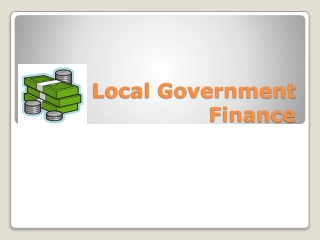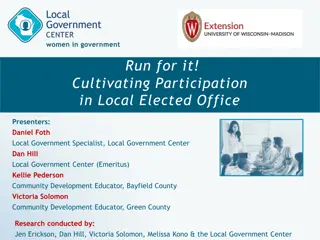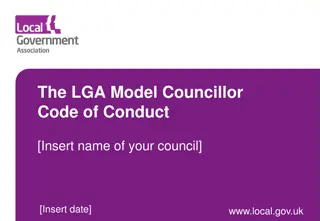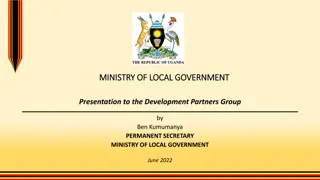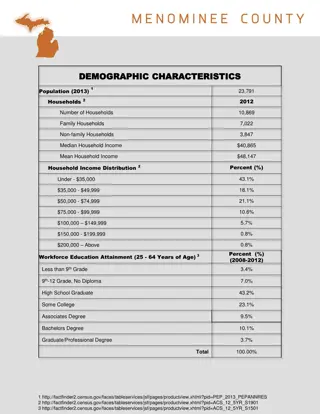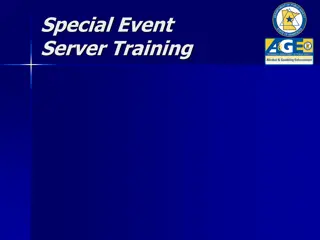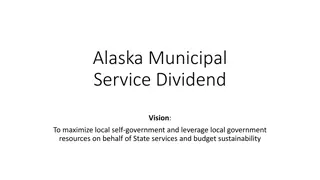Essential Guide to Serving as a Local Government Councillor
Understanding the role of a local government councillor involves contributing to community well-being, representing constituents, and engaging in decision-making processes while upholding values of transparency, fairness, and integrity. This guide outlines the responsibilities, skills, and commitment necessary for effective service in local government.
Download Presentation

Please find below an Image/Link to download the presentation.
The content on the website is provided AS IS for your information and personal use only. It may not be sold, licensed, or shared on other websites without obtaining consent from the author.If you encounter any issues during the download, it is possible that the publisher has removed the file from their server.
You are allowed to download the files provided on this website for personal or commercial use, subject to the condition that they are used lawfully. All files are the property of their respective owners.
The content on the website is provided AS IS for your information and personal use only. It may not be sold, licensed, or shared on other websites without obtaining consent from the author.
E N D
Presentation Transcript
Standing for council Standing for council Local Government Elections - October 2021
What is local government? Grass roots level of government Closest to the community Local governments are established by the State Government to deliver services and facilities to communities. 2
Why stand for council? Contribute to the development and well-being of your community Empower a sense of purpose and commitment to your community 3
Role and responsibilities Represent the interests of all electors, ratepayers and residents Participate in council s decision making process Contribute to council s strategic direction and planning with community input Perform other functions as directed under the Local Government Act 1995. 4
Values and characteristics Openness and transparency in decision making Tolerance and respect in all relationships Awareness of potential conflicts of interests Fairness in promoting community issues (consider diverse interests and needs across the community and make decisions in the best interests of the district) Observe principles of good governance and act with integrity 5
Essential skills of a councillor Communicate, debate and actively participate in meetings Enhance discussion and assist discussions to reach closure Develop and maintain effective working relationships Manage interpersonal conflicts Exercise independent judgement 6
Commitment to the role Attend all meetings Listen to, and consider different points of view Participate in the decision making process at meetings Share the workload Networking and community consultation Participate in on the job training and personal development opportunities 7
Decisions you might make as a councillor Determining Policy Planning for the future Managing assets Governing finances Reviewing policy 8
Local government decision making process 9
What to expect if you are elected New councillors will need to: Make a Declaration of Office Complete universal training Be briefed by the Mayor/President and/or CEO during an induction Attend the first council meeting after election (this meeting usually introduces new council members and makes new appointments to various committees) 10
Support for candidates Department s website Local Government Induction for Prospective Candidates dlgsc.wa.gov.au/candidate-induction Election information dlgsc.wa.gov.au/elections General support dlgsc.wa.gov.au/support-and-advice Other websites Each local government has information about its own election WA Electoral Commission for local government elections www.elections.wa.gov.au For support provided by the WA Local Government Association (WALGA) www.walga.asn.au WA local government legislation www.legislation.wa.gov.au/legislation/statutes.nsf/law_a465.html 11
Department of Local Government, Sport and Cultural Industries Tel: +61 8 6552 7300 Free Call: 1800 634 541 (Country Only) Email: lghotline@dlgsc.wa.gov.au www.dlgsc.wa.gov.au


